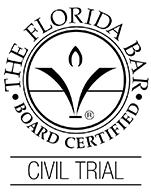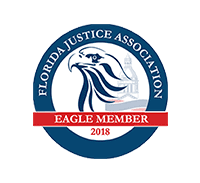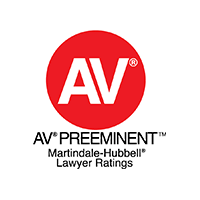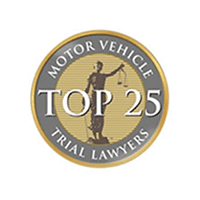If you want to ride a motorcycle in Florida, you need to be prepared and responsible. You will need to abide by all of Florida’s laws. This includes the rules of the road, licensing and insurance requirements, and keeping your motorcycle in proper working condition. When you carefully follow all of Florida’s motorcycle laws, you can help reduce motorcycle accidents and help keep everyone on the road safe.
What Licensing do I Need to Drive a Motorcycle?
According to the Florida Highway Safety and Motor Vehicles(FLHSMV), you must have proper licensing and endorsement to operate a motorcycle. This typically means you will need the following:
- A class E non-commercial driver license: This is the standard license for most drivers who are not operating commercial vehicles.
- A motorcycle endorsement: For an official motorcycle endorsement, you must complete a course on motorcycle safety. These courses are called the Basic RiderCourse (BRC) or Basic RiderCourse updated (BRCu). You will also need to pay endorsement fees.
With these two steps, you will have a special designation on your license of “motorcycle also,” which means you have a right to operate a motorcycle and other non-commercial vehicles.
Getting a Motorcycle-Only License
Some people may choose to get a motorcycle-only license. In this situation, you still need to pass the knowledge test for a class E license. You must also complete the authorized motorcycle safety course and pay endorsement fees.
If you are under 18 and want a motorcycle-only license, you must hold a learner’s license for one year or more. You must also ensure you don’t get any traffic convictions during this timeframe.
You will need to decide what type of motorcycle license is appropriate for your situation.
Insurance Requirements for Motorcyclists
Most states require motorcyclists to have insurance, but things are different in Florida. You don’t need motorcycle insurance to own a motorcycle. However, you must have proper medical coverage if you are over twenty-one and choose to ride your motorcycle without a helmet.
Even though motorcycle insurance isn’t a requirement, having it can still be a good idea. Having insurance can make things easier if you end up in an accident. Operating a motorcycle can be risky, so preparedness can help you be ready no matter what comes.
Abiding By the Rules of the Road While on a Motorcycle
Motorcyclists have to follow many of the same road rules that motor vehicle drivers must follow. Even though they are smaller than other vehicles, they still must follow road signs and traffic light signals. For example, motorcycles must stop at a red traffic light, the same as other vehicles.
Lane Changing Laws
Some of the most significant confusion for motorcyclists surrounds lane use and passing. Motorcycles can ride two abreast in a lane. However, riding with more than two riders right next to each other in one lane is illegal in Florida.
You are not allowed to pass other vehicles in the same lane or in-between lanes. To safely pass lanes on a motorcycle, you must pass by going into the next lane, the same as you would if you were driving a car.
Motorcyclists must also ride with one leg on each side of the bike and have both wheels of the motorcycle in contact with the roadway. This makes certain seating positions and motorcycle tricks unacceptable under Florida law.
Do I Need to Wear a Helmet While Riding a Motorcycle in Florida?
If you are under twenty-one years old, you have to wear a helmet while riding a motorcycle. However, if you are twenty-one or older, you may have the option to not wear a helmet in certain situations. You do not have to wear a helmet if you have at least $10,000 in medical benefits or more. Regardless of age, all motorcycle drivers must wear proper eye protection.
If you do meet the criteria for not wearing a helmet, it’s important to keep proof of your coverage handy. This way, you can show law enforcement that you are legally allowed to not wear a helmet.
Proper Motorcycle Maintenance
In Florida, your motorcycle also has to have certain features that help ensure motorcycle safety. A few required features include the following:
- At least one motorcycle headlight but no more than two
- A horn, if you are planning on riding on a highway
- A mirror
- At least one red reflector attached to the rear of the motorcycle
- A stop lamp and signal lamps
- At least one tail lamp
You must also follow certain restrictions, like having your handlebars below a certain height. If your motorcycle does not have properly working parts, it could mean getting stopped by law enforcement. It can also increase your risk of being in an accident.
Tips for Ensuring Safety as a Motorcycle Driver
While Florida does have slightly more relaxed laws for motorcycle riders, you can still take steps to stay safe. Wearing a helmet is critical for decreasing your risk of severe head injuries or death. Similarly, while motorcycle insurance isn’t required, it can be a responsible thing to have.
Consider also the following ways you can increase your safety as a motorcycle driver:
- Engage in riding that increases visibility to other drivers
- Promptly repair motorcycle damages and keep your motorcycle in proper working condition.
- Exercise wise judgment and be aware of your surroundings
- Do adequate safety checks before you ride to ensure everything is working properly
- Wear protective clothing that covers your body, including appropriate reflective clothing that increases visibility.
- Do not ride if you are under the influence of drugs or alcohol.
Begin Your Motorcycle Accident Case with a Free Consultation Today
If you have experienced a motorcycle accident, the legal team at Dismuke Law is ready to help. We can help you figure out your eligibility for compensation. We will consider your damages and help you with the confusing legal aspects along the way. You can contact us today for a free consultation.


![cftla-member[2]](https://www.1800askdave.com/wp-content/uploads/2022/03/cftla-member2.png)
![cftla-member[3]](https://www.1800askdave.com/wp-content/uploads/2022/03/cftla-member3.png)










